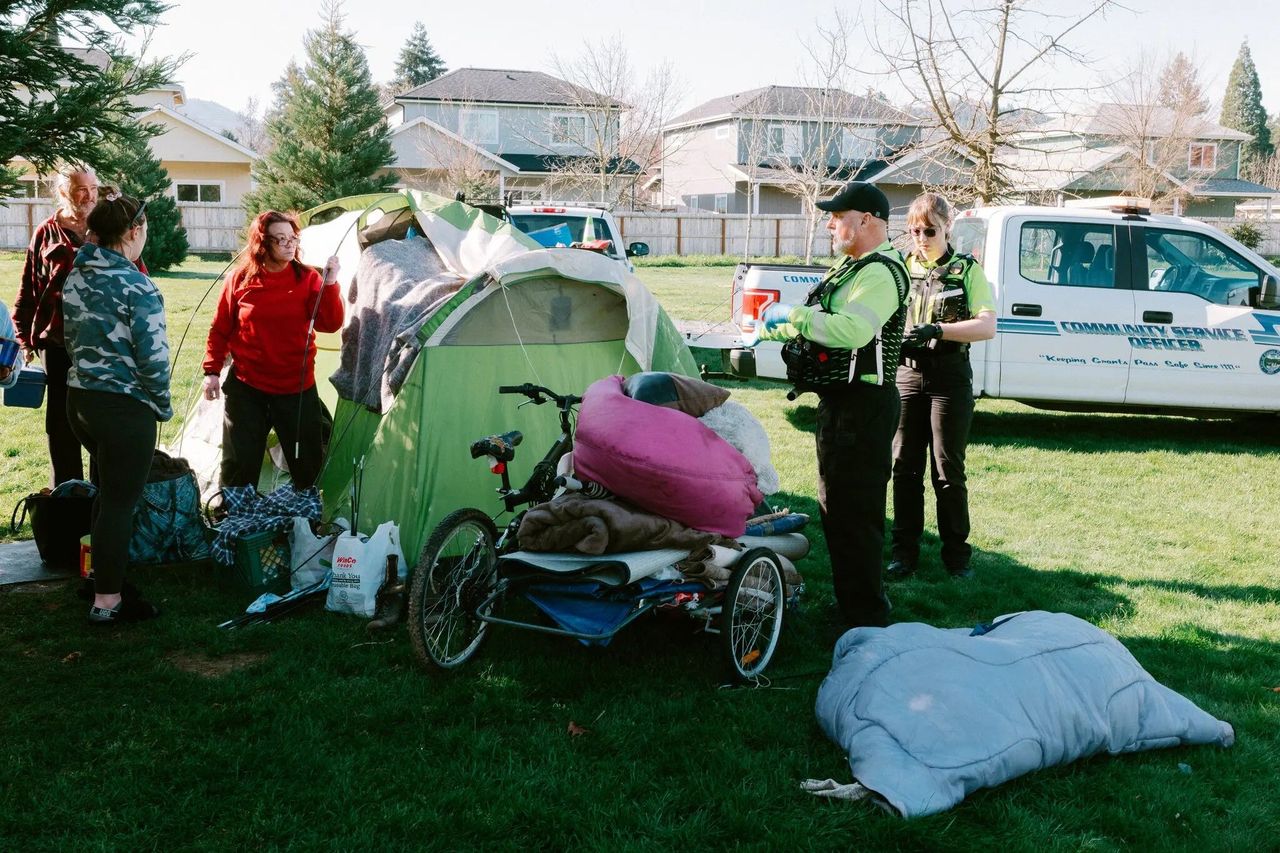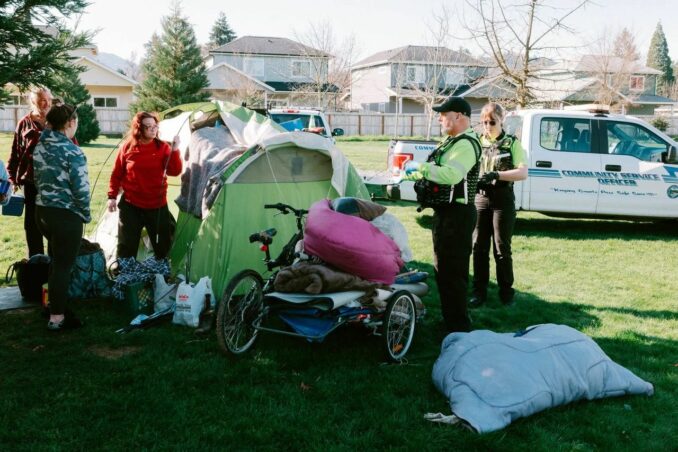

Grants Pass, Oregon, increased enforcement of ordinances, carrying hundreds of dollars in fines and threats of jail against homeless people.
The Supreme Court of the United States is set to begin hearings in April on a high-profile case that could potentially make it a crime to be homeless. The case of the City of Grants Pass, Oregon v. Gloria Johnson will consider whether a local government can outlaw sleeping outside even if adequate shelter is not accessible.


Grants Pass, Oregon, increased enforcement of ordinances, carrying hundreds of dollars in fines and threats of jail against homeless people.
A SCOTUS decision favorable to Grants Pass would open the door for cities across the U.S. to apply even more draconian policies against houseless people, while making no provisions to ensure adequate housing exists. Rather than allocating necessary resources to address problems of chronic homelessness, many cities are already diverting resources to increase policing to round up unhoused individuals and families simply for being poor.
Meanwhile, RentCafe.com estimates that the average cost to rent an 899 square foot apartment in the U.S. as of March 2024 was $1,713 per month or $20,556 per year. A worker paid the federal minimum wage would only make $15,000 per year working 40 hours per week.
The highest court’s battle takes place against a background of housing being unaffordable for a record half of renters, according to a 2022 Joint Center for Housing study at Harvard University. The study found that as rents spiked during the COVID-19 pandemic 2020-2022, renters in every income category paid over 30% of their income for rent and utilities. In some cases, they paid over 50%.
Lower-income workers and families making $30,000 to $74,000 a year were hard-hit, but renters earning under $30,000, already struggling to afford housing, faced an 83% increase in costs. The number of people sleeping outside or in shelters increased 12% in 2023 over the previous year.
The Harvard study found nearly a third of households headed by people 65 and older pay over 30% of their income for housing. Half of that group pays more than 50%. In 2021, 11.2 million households were headed by seniors.
A SCOTUS ruling against unhoused people could also lead to landlords raising rents, knowing that people must either pay high rents or risk being jailed. Buying homes is also increasingly unaffordable for most households, especially with interest rates for loans now over 7% and wages stagnant or falling after inflation.
Money for war, but none for human needs
Since the start of the U.S./NATO driven war in Ukraine, the Joe Biden administration has sent $75 billion, mostly military aid, to support the war. Ukraine is slated to receive $60 billion of the $95 billion foreign aid bill recently passed by Congress. That bill includes $26.38 billion for Israel, coming on top of $18 billion sent in February, and $14.3 billion sent to the Zionist state in November.
The Biden administration readily doles out billions of dollars for weapons and to expand wars abroad, while affordable housing projects, if people in need are lucky, may only get millions from Housing and Urban Development.
The direct link between war spending and injustice abroad was addressed by Dr. Martin Luther King Jr., who led an anti-war rally on March 25, 1967, in Chicago, where he said: “The bombs in Vietnam explode at home — they destroy the dream and possibility for a decent America.”
As part of Workers World newspaper’s coverage marking the 50th anniversary of the liberation of…
From the PFLP Central Media Office The following statement from the Popular Front for the…
Newark, New Jersey Over 250 people, representing over 250 New Jersey endorsing community groups, attended…
Special to Workers World The following is a press release issued on April 24, 2025,…
dear Larry Krasner, we heard you sued Elon Musk over his corrupt million election giveaways…
Unions join forces against harassment and deportation of members When 200 immigrant workers – from…